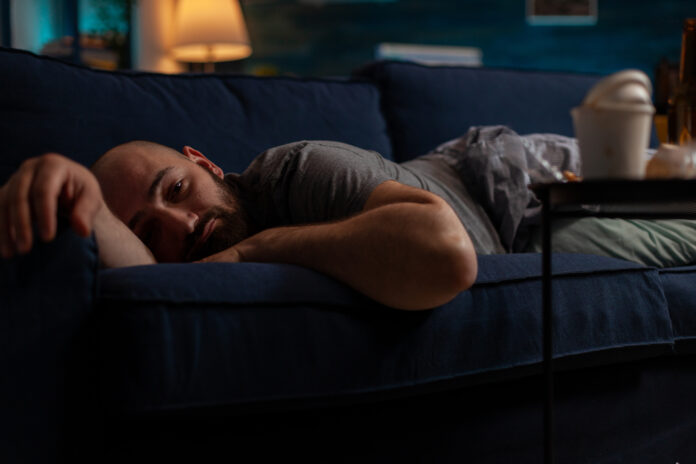Have you ever experienced disruptions in your feelings, emotions and routine activities due to lack of sleep? This is a mental condition called insomnia that affects more than 20% of the population in the world and is referred to as a lack of good sleep at night. Mostly the insomnia symptoms are not considered dangerous but it affects your life in many ways and disturbs your sleep schedule and sleep quality.
Inability to have a peaceful sleep you need to feel refreshed. As insomnia is categorized as a sleep disorder, several factors take part in causing insomnia, including chronic health conditions, obesity, anxiety, or stress. According to medical reviews, about one-third of insomnia-affected people belong to adult age. However, it is also reported that the condition also affects children.
Medications, mental health therapies, and lifestyle changes can help treat the condition.
What do the Varying Sleep Habits and Needs Mean?
On the basis of sleep habits, sleep experts categorized several sleep characteristics as normal. You can understand this by continuing reading!
Learned Sleep Differences: Some people develop specific sleep habits due to their lifestyle or external environmental factors. For example, if you belong to a profession where you have to do duty at night, you will shift your sleep schedule to daytime. Military people have practiced sleeping for little time because of the needs of their professional duty. Contrary to this, some people can sleep more than the normal required sleep amount. They don’t care about the environment of the sleeping area and can get a sound sleep even in a noisy place.
Natural Changes: Your sleep needs go on changing with time. For example, adults need nearly eight to nine hours of sleep at night while infants need significantly more sleep, a maximum of around 15 to 16 hours of sleep a day.
Short Sleepers: Due to some genetic reasons, some people are reported to need less sleep than others. This is a natural phenomenon.
Early Risers: Some people develop a habit of going to bed early and awake early naturally.
Late Risers: Some people have a habit of waking up late at night which makes them later risers.
Is Insomnia A Common Disorder?
All forms are considered common because studies claim that every 2 of 5 adults have some insomnia symptoms all over the world. 15 to 20 percent of people are living with severe insomnia symptoms around the world too.
Symptoms of Insomnia
Insomnia symptoms usually include:
- Experience trouble falling asleep while going to bed.
- Feeling worried about you not falling asleep while lying on the bed to have a sleep.
- Broken or interrupted sleep patterns that make you dull and tired even after waking up.
When these symptoms are not treated or managed, they tend to worsen and cause the development of more symptoms of insomnia, including:
- Difficulty in remembering things.
- Trouble in concentration.
- Mood swings and irritability.
- Fatigue and lack of interest in daily chores.
- Feeling sleepy during the day.
Types of Insomnia
Insomnia is categorized into different types. Sleep experts divide insomnia into five types based on their characteristics:
Acute Insomnia: This condition doesn’t last for more than 3 to 4 weeks and is known as short-term sleeping disorder.
Onset Insomnia: Overuse of caffeine or mental health conditions cause this type of insomnia. You may feel trouble in getting sleep but it always develops due to some other sleep disorders.
Chronic Insomnia: This condition lasts for more than 4 to 5 months. You get disrupted sleep every day. This is subdivided into primary insomnia and secondary insomnia.
Behavioral Insomnia: This condition mostly affects the children. Affected children often refuse to go to bed and have trouble falling asleep. Teaching them self-soothing strategies can help them to get rid of this problem. Sometimes the children try their own and follow a regular sleep pattern that helps them to have a good sleep.
Maintenance Insomnia: This condition indicates the trouble of consistently waking up late at night or waking up too early. Some people also complain of experiencing trouble remaining asleep once they get to sleep. Sleep experts suggested that this type of insomnia may be caused by other underlying health conditions. This type of insomnia is considered the most dangerous type because its symptoms get worse over time.
Causes of Insomnia
 Its causes keep varying depending upon the type you have. Common causes of acute insomnia include:
Its causes keep varying depending upon the type you have. Common causes of acute insomnia include:
- Stressors such as an upsetting.
- Jet lag.
- A traumatic incident.
While chronic insomnia can be diagnosed due to the following symptoms:
- Sleep disorders such as sleep apnea.
- Chronic conditions causing severe pains like back pain or arthritis.
- Psychological disorders such as depression or anxiety.
- Substance use disorders.
- Underlying health conditions including gastroesophageal reflux disease or diabetes.
Risk Factors for Insomnia
According to research, insomnia is an age, genetic, and sex-related disorder. Therefore, it mostly affects the people:
- With pregnancy.
- With older adulthood.
- Having or neat to have menopause.
- Other typical risk factors for insomnia are:
- Drinking caffeinated beverages.
- Taking naps during that time.
- Work shift, i.e. from night to day or day to night.
- Sedentary lifestyle.
How Is Insomnia Related to Pregnant People?
Most women experience insomnia symptoms during pregnancy, especially in the first and third trimesters. Insomnia symptoms that appear during pregnancy go away after childbirth and cannot pass to the baby. However, trying to get a sound sleep during pregnancy can help in delivery and overall well-being. Some lifestyle changes can also help in managing the insomnia symptoms during pregnancy. They include:
- Practicing stress relieving techniques like breathing exercises or yoga.
- Following a consistent sleep pattern and maintaining a circadian rhythm.
- Eating a balanced diet.
How Does Insomnia Affect the Children?
Although studies show that insomnia is an age-related disorder, this condition is also reported as affecting children and teens. They develop insomnia symptoms due to:
- Having difficulties concentrating and remembering things.
- Shot-memory loss trouble.
- Repeated disciplinary problems.
- Sleeping during the day.
- Restlessness due to interrupted sleep.
- Mood swings and irritability.
Insomnia in children can be treated by setting a regular strict bedtime schedule. It may be managed by:
- Reducing stress-triggering factors in your child’s life.
- Practicing good sleep hygiene.
- Avoiding screen time before bedtime.
- Creating a soothing environment for sleep such as a cool, dark room with comfortable bedding.
However, you can get more authentic guidelines from a pediatrician or a sleep therapist for treating insomnia in children and teens.
Insomnia in Older Adults
Research on insomnia in adults has revealed that around 80 to 85% of older adults experience insomnia symptoms. Sleep experts indicate several factors contributing to the development of insomnia in older adults with a domino effect that means:
- Irregular daytime napping, because not having a good sleep at night triggers sleepiness in them during the day and makes them sleep easily during the daytime.
- Changes in their circadian rhythm due to old age.
- Age-related chronic health conditions such as pain in joints and muscles.
- Having no consistent daytime schedule or social disconnection due to being retired from a job.
- Social disconnection can increase the chances of getting depression and contributes to loneliness.
- If you get affected by insomnia, a sleep therapist or healthcare professional can offer you support in finding the most effective treatment options.
Insomnia Diagnosis
Insomnia diagnosis would start with asking some questions. Your healthcare provider may ask about:
- Your sleep history, such as how long you have experienced the symptoms and how they are affecting your life quality.
- Mental and physical disabilities you are going through.
- Any underlying health condition you have.
- Stress-triggering incidents in your social, professional, and personal life.
Finding answers to these questions can help them to identify the causes of your insomnia symptoms. Your doctor will ask you to have a record of your sleep schedule by writing it in a journal or keep using an app. This sleep-related information can help your doctor to diagnose the severity of insomnia in you and to choose the best treatment option that may suit you. Such information may include:
- Your waking time every day.
- Your bedtime every day.
- Incidents of having sleep interruptions during the night.
- The maximum time you need to fall asleep.
Sometimes, healthcare professionals carry out specific medical or blood tests to diagnose certain medical conditions that would interfere with your sleep. If any underlying sleep issues, such as sleep apnea or depression, they may recommend a sleep study to make better decisions for your treatment.
Remember that having a continuous sleep disorder affecting you more than 3 to 4 months consistently, is an indication to have a trip to your doctor to receive a clinical diagnosis.
Treatment Options for Insomnia
Several treatment options are considered best for treating insomnia, including medications, mental health therapies, supplements, and natural remedies.
Medications
If lifestyle changes don’t work properly to test your insomnia symptoms, your healthcare provider may prescribe certain medications including:
- Triazolam.
- Eszopiclone.
- Zolpidem.
Some OTC medications are also effective for this purpose and offer relief from insomnia. For Example, a supplement known as melatonin compound can help you fall asleep easily. However, the researchers have less evidence to confirm the usability of melatonin for insomnia treatment because studies reveal that long-term use of melatonin supplements can cause side effects. Always check in with a sleep expert or a professional healthcare provider before taking any supplement or medication to help ease insomnia symptoms. Because these supplements or OTC medications often interact with other prescribed medicines.
Natural Remedies
Home remedies or lifestyle changes can manage insomnia symptoms at home. You can try these:
Physical Activity: Regular light exercise for at least 20 to 30 minutes can help you fall asleep in no time. This may also help in secreting melatonin naturally which helps improve your sleep quality.
Meditation: This can help you improve your sleep quality by relieving stress which is the major cause of insomnia. It promotes relaxation in your nervous system.
Natural Sleep Aids: Trying relaxing oil massages and taking natural herbal teas before bed can promote sleep quality and help relieve insomnia symptoms. You can try valerian or warm milk for this purpose. Oils of peppermint and lavender are best for hair massage before bed. Acupuncture: This is a traditional medicine that helps ease insomnia symptoms and promote sleep quality.
Acupuncture: This is a traditional medicine that helps ease insomnia symptoms and promote sleep quality.
Cognitive Behavioral Therapy
According to a study, this is the most effective treatment option for insomnia. This can be done with the support of a clinician or a sleep therapist who can teach you different techniques to address insomnia, including:
Bright Light Therapy: Exposure to daylight or bright light during the day can help ease insomnia.
Napping Restriction: Avoiding naps during the day can gradually increase the amount of sleep at night.
Control on Stimulus: Finding out the relaxing activity before bedtime until you feel sleepy can help limit the time you lie awake and worry about falling asleep.
Your sleep therapist may ask you to follow certain relaxing techniques to address your insomnia symptoms and help get asleep easily.
Complications Associated to Insomnia
Disrupted or interrupted sleep causes slowing down the brain functions and their efficiency. You experience a decline in your cognitive abilities with an increase in forgetfulness to cure insomnia. When you don’t get enough sleep, your brain feels foggy and has trouble concentrating. These are the side effects of insufficient sleep. Certain serious health conditions are also associated with insomnia, including:
- Asthma.
- Depression.
- Obesity.
- High blood pressure.
- Alzheimer’s disease.
- Dementia.
- Diabetes.
- Heart diseases.
Insomnia also increases the risk of difficulty in remembering along with worse performance at school. It also causes an increased rate of car accidents.
Conclusion
Insomnia symptoms affect old adults, children, and teens. This is a sleep disorder that causes a decline in memory, and emotional, mental, and physical health. You can treat this condition by practicing certain relaxing techniques or taking prescribed medications.
However, the risk factors mostly damage your quality of life and increase the chances of getting depressed.
A healthcare professional or sleep therapist can help you to diagnose insomnia at an early stage. They may help explore possible treatment options for insomnia according to the type of insomnia you have.







